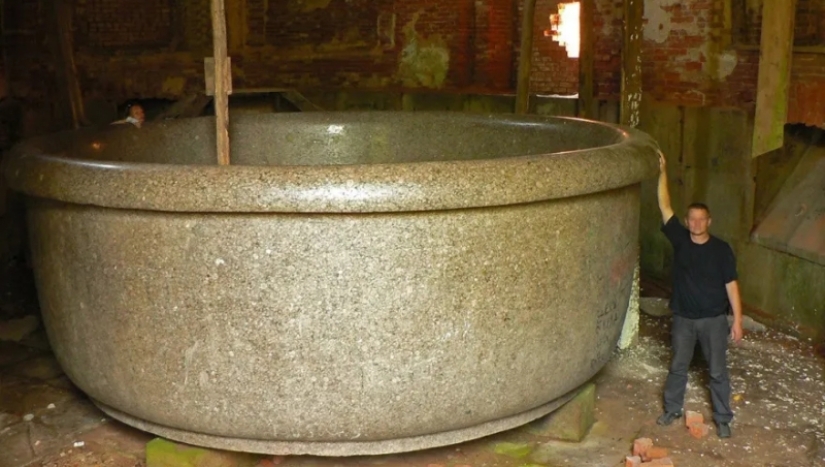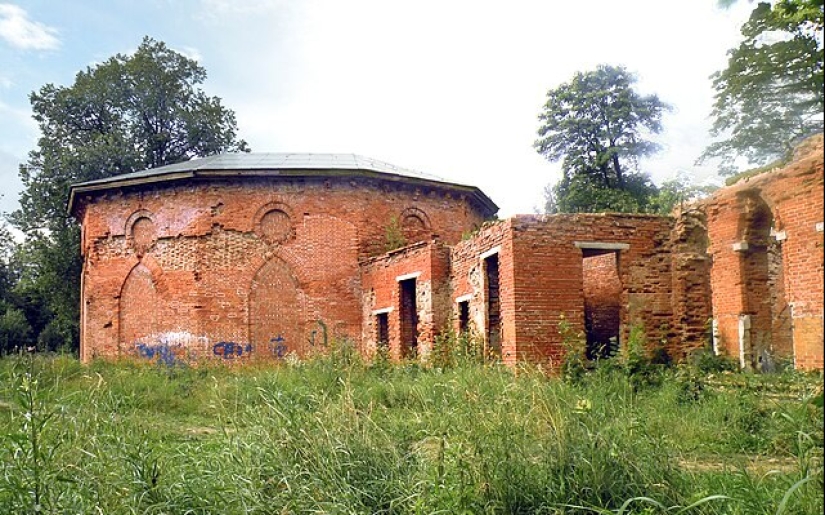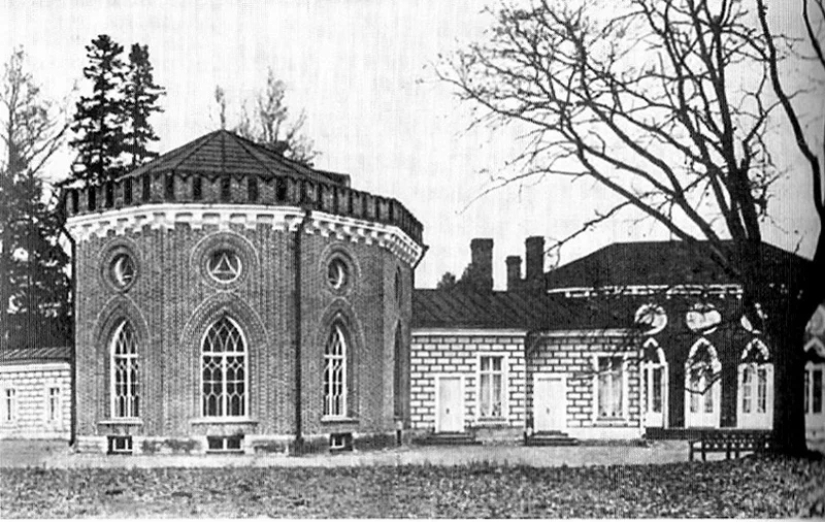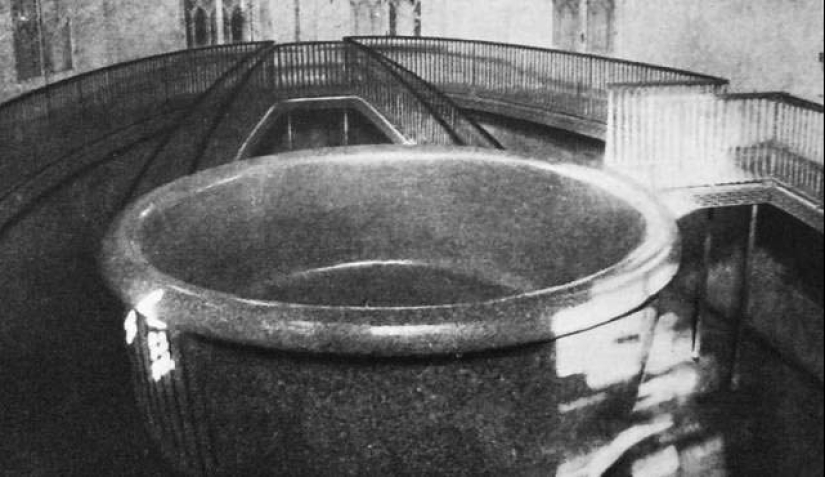Tsar-bath: what secrets are hidden by a giant bowl in an abandoned palace
Categories: History
By Pictolic https://pictolic.com/article/tsar-bath-what-secrets-are-hidden-by-a-giant-bowl-in-an-abandoned-palace.htmlThere is no need to tell what a tsar cannon or a tsar bell is. Everyone knows about these gigantic, but completely useless masterpieces of casting. But very few have heard about the tsar bath, which is located in the Babolovsky Palace in Tsarskoye Selo near St. Petersburg. Meanwhile, this product of the masters of the early 19th century deserves no less attention than the Moscow sights.

Despite the fact that the tsar bath was called the "eighth wonder of the world" and was sung in poetry by Pushkin, today it is almost forgotten. It is located in the dilapidated Babolovsky Palace on the outskirts of the park of the same name in Tsarskoye Selo. It can be seen in the depths of a squat octagonal red brick tower. This structure has been restored relatively recently and so far the hands have only reached the temporary roof.

The bath is a round bowl of gray granite, about 2 meters high and 5 meters in diameter. Its depth is 1.5 meters, and the wall thickness is only 45 mm. The weight of this hulk is 48 tons. In fact, it's not even a bath, but a whole pool in which several people can simultaneously take water treatments. Judge for yourself, it fits as much as 23 cubic meters of water!
Many believe that the Babolovsky Palace was built precisely for this colossal masterpiece of stonecutters. But this is not so, and the building appeared when no one had thought about the bath yet. It was erected by decree of Empress Catherine II in 1785. The palace, or rather, the pavilion, was conceived as a summer cottage with a swimming pool. The building is designed in the Gothic style fashionable at the end of the 18th century and fits perfectly into the surrounding park landscape.

It is not known how often the crazy empress visited the Babolovsky Palace, but her grandson, Alexander I, fell in love with this place. There are legends that the emperor used the dacha for romantic dates with his favorites, but there is no confirmation of this. One way or another, but the monarch often visited there and, according to his personal instructions, the palace was redeveloped and completed.
The sovereign ordered to replace the white marble bath with a huge granite bowl. Alexander I entrusted the solution of the problem to the court engineer Augustine Betancourt. He turned to the famous stonecutter Samson Sukhanov. The master demanded a huge sum for the work at that time — 16 thousand rubles, which was allocated to him without any problems. Sukhanov also ordered a granite block weighing more than 160 tons.
The material was delivered to Tsarskoye Selo from one of the islands of the Gulf of Finland. It took a lot of effort and time, but in the same year 1811, work began to boil in the palace. Its complexity was not only in the great complexity. Granite is a very hard, but therefore quite fragile stone. Throughout the work, the team of stonecutters was afraid of damaging it, because even a small crack would nullify all efforts.

The masters managed to do something that many did not believe in. They carved a bowl with a wall thickness of 45 mm, which was able to withstand the weight of water. The director of the St. Petersburg Mineralogical Society, Professor Ya. Zembnitsky wrote about this bath as follows:

The production of the stone masterpiece lasted for a long 7 years. The work did not stop even during the Patriotic War of 1812. Cast-iron bridges with stairs were ordered for the bath at the Admiralty Shipyard, because otherwise it was impossible to get into the bowl. Interestingly, the Babolovskaya bath has never had devices for water supply. They filled it with buckets, which required exactly 1900. Also with buckets, the bowl was emptied — there is no drain hole at its bottom.
The intimate life of monarchs is always overgrown with speculation and legends. A lot of them are connected with Alexander I. It is not known exactly which of them are true and which are fiction. It was said that the tsar bath was filled specially for the sovereign and his mistress Sophia Velho. Gossip around these meetings prompted Pushkin to write a poem "On the Babolovsky Palace", dedicated to the novel, about which the whole capital was talking.

After the revolution, a flight school was placed in the Babolovsky Palace. A huge granite bowl was gathering dust idly, attracting only the attention of curious cadets. During the Second World War, the Nazis bombed the building with precision, causing great damage to it. This can be considered a miracle, but the tsar bath not only survived, but did not even receive damage. The Germans also planned to take the "eighth wonder of the world" to Germany as an Amber Room, but they did not have time.
Now the tsar-bath is in its place, and the Babolovsky Palace itself is being restored little by little. Perhaps someday the granite bowl will become a famous attraction that tourists from all over the world will want to see.
Recent articles

It's high time to admit that this whole hipster idea has gone too far. The concept has become so popular that even restaurants have ...

There is a perception that people only use 10% of their brain potential. But the heroes of our review, apparently, found a way to ...

New Year's is a time to surprise and delight loved ones not only with gifts but also with a unique presentation of the holiday ...